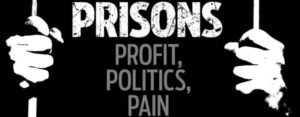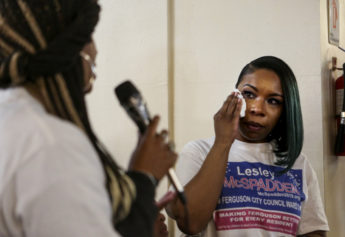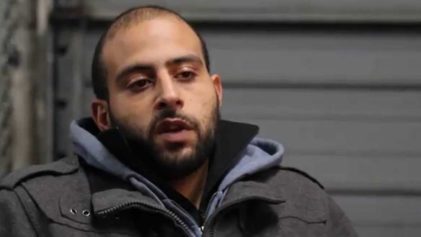
“In an alarming number of cases where indigent defendants appear in court to address an unpaid fine, judges do not inform these defendants of their rights,” said the report. “Judges do not afford them a lawyer. Judges do not even determine whether they can pay the fine. Judges simply put them in jail.”
According to the law, before someone can be thrown in jail for a failure to pay a fine or court fee, the court must meaningfully inquire into the reasons why the person has failed to pay, and determine whether the individual has sufficient resources and is willfully refusing to pay.
In addition, both federal state and federal law require the defendant have representation by a lawyer if a judge is considering incarcerating a person for failure to pay a fine or fee in a criminal case. After all, the state already has its own lawyers in the form of the prosecution, so there needs to be a check on the system that a defense lawyer would provide. And yet, the ACLU report found that in an estimated 148 cases in 2013, New Hampshire judges sent people to jail without a proper hearing and without counsel.
Further, jailing people because of indigence is counterproductive, as it can lead to one’s termination from a new job or hinder efforts to find employment, and prevent struggling parents from taking care of their infant children. Moreover, it makes no sense to jail people who are no danger to society, and at a cost that exceeds the amount of the fine in the first place.
“Being poor is not a crime in this country,” said Devon Chaffee, executive director of the ACLU-NH. “Incarcerating people who cannot afford to pay fines is both unconstitutional and cruel. It takes a tremendous toll on precisely those families already struggling the most.”
The Granite State is not alone in perpetuating this troubling and illegal practice. The U.S. Department of Justice wrote a scathing report on the Ferguson Police Department and the revenue generating scheme maintained by the police and municipal court system that targeted African-Americans in the enforcement of code provisions.
“Ferguson’s law enforcement practices are shaped by the City’s focus on revenue rather than by public safety needs,” the report said. “This emphasis on revenue has compromised the institutional character of Ferguson’s police department, contributing to a pattern of unconstitutional policing, and has also shaped its municipal court, leading to procedures that raise due process concerns and inflict unnecessary harm on members of the Ferguson community.”
As NBC News reported, there is a growing movement against the jailing of the indigent, with civil rights groups targeting courts in Louisiana, Alabama, Ohio, Washington, Colorado and Georgia. Some states have enacted reforms as a result.
In early September, the Southern Center for Human Rights filed a class action suit against Calhoun, Georgia or “jailing the poor because they cannot pay a small amount of money,” according to CNN. These amounts are in the form of bail payments for misdemeanor charges ranging from $5 for a two-hour parking violation to over $1,000 for driving with a suspended license.
The case arose from the arrest of Maurice Walker, 54, an indigent man who was arrested for public intoxication. Walker’s attorneys said the man could not afford the $160 fine, after which he was jailed. The Southern Center for Human Rights also settled a lawsuit with the city of Bainbridge, Georgia for detaining people too poor to pay court and probation fees for misdemeanor crimes. Under the agreement, the city agreed to reform its policies and procedures concerning the collection of these fees, as WABE in Atlanta reported. For example, Bainbridge can no longer hold people who are unable to make day-of-court payments, and is barred from locking up people for failure to pay unless it is willful.
DeKalb County, Georgia settled a federal lawsuit this year filed by the ACLU of Georgia for improperly jailing poor people who couldn’t afford misdemeanor probation plans. The ACLU filed the suit on behalf of Kevin Thompson, 19, who was placed on probation because he didn’t could not afford to pay a fine for a driving offense. In 1983, the U.S. Supreme Court prohibited judges from revoking probation due to a failure to pay if a defendant is indigent and the failure is not willful.
In Louisiana, six plaintiffs filed a lawsuit alleging an “illegal scheme” against the criminal district court in New Orleans, alleging that judges and other court officials maintain an “illegal scheme” in which the poor are jailed indefinitely for falling behind on payment of court fines, fees and assessments, according to the New York Times.
“The extent to which every actor in the local New Orleans legal system depends on this money for their own survival is shocking” said Alec Karakatsanis, a lawyer with Equal Justice Under Law, a civil rights group that participated in filing the suit.
Recently, the ACLU of Louisiana released a report, “Louisiana’s Debtors Prisons: An Appeal to Justice.” The organization found debtors’ prison practices is a widespread problem. A sentence can be imposed as an alternative to a fine, and jail is automatic if the person cannot afford to pay. Further, according to the New Orleans Advocate, when an individual misses a payment on an installment plan, jail is often imposed and that person is charged with contempt of court.
Also in September, the Southern Poverty Law Center filed a lawsuit against Alexander City, Alabama for maintaining “modern-day debtors’ prisons” as Think Progress reported. For a town that is about 30 percent below the poverty line, the practice can impose a heavy burden and financial hardship.
“We’ve seen records that show probably over 200 people have suffered from this practice in Alexander City in the last two years,” said SPLC staff attorney Sara Zampierin. “The debtors’ prison practice… is just creating a two-tiered system of injustice where those who can pay can avoid jail and those who can’t can avoid jail and avoid the consequences.”


